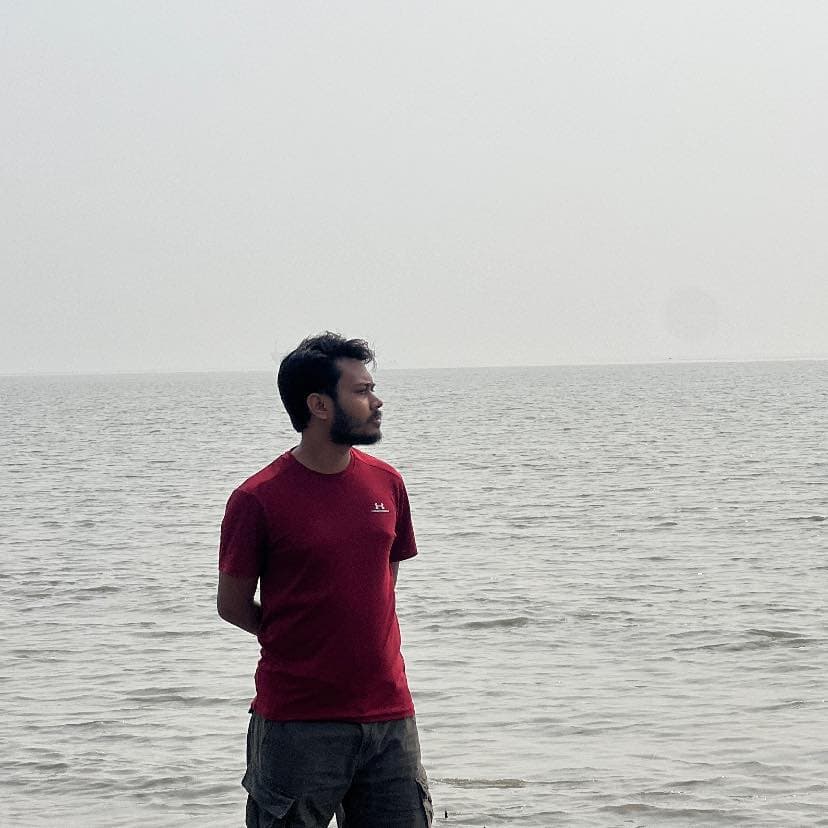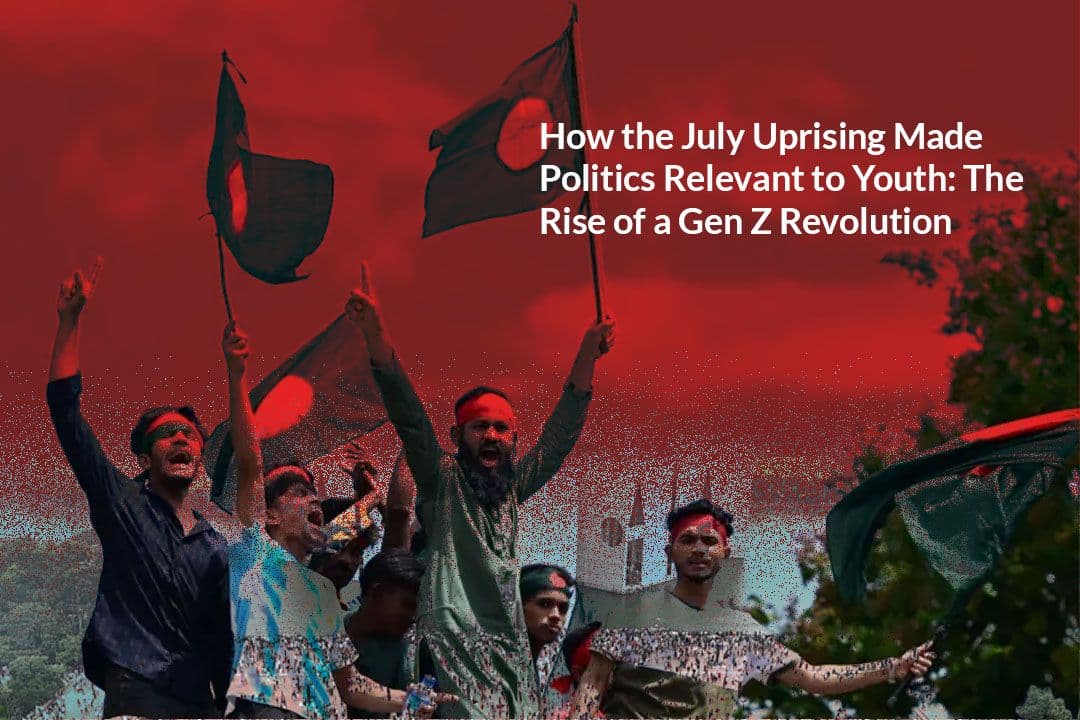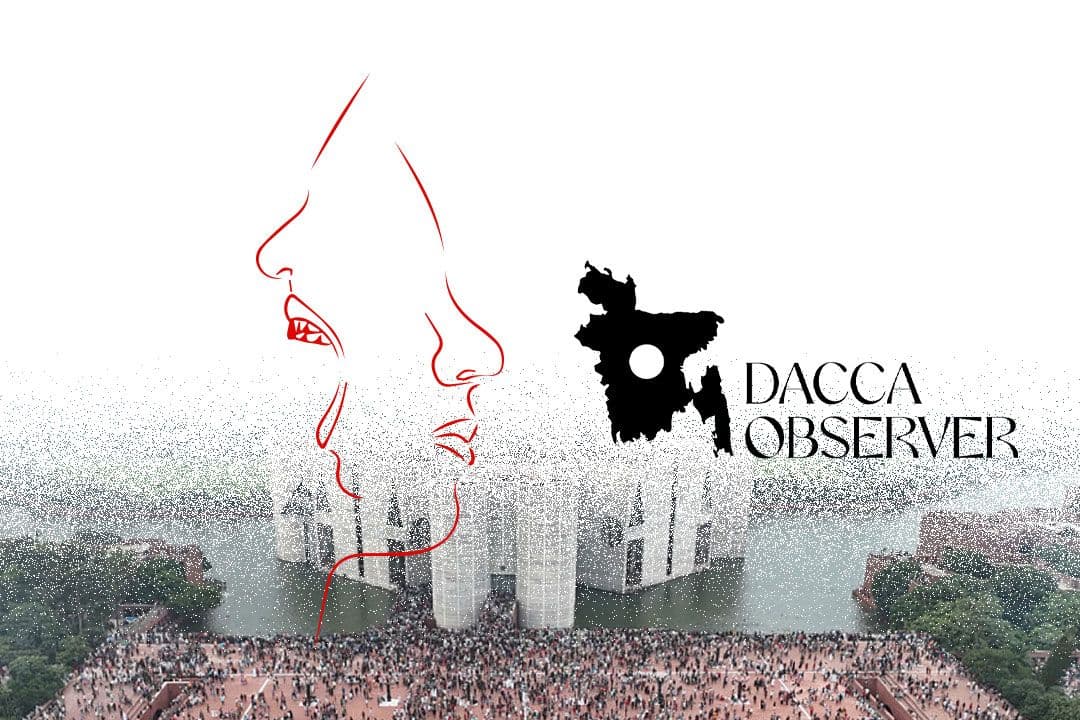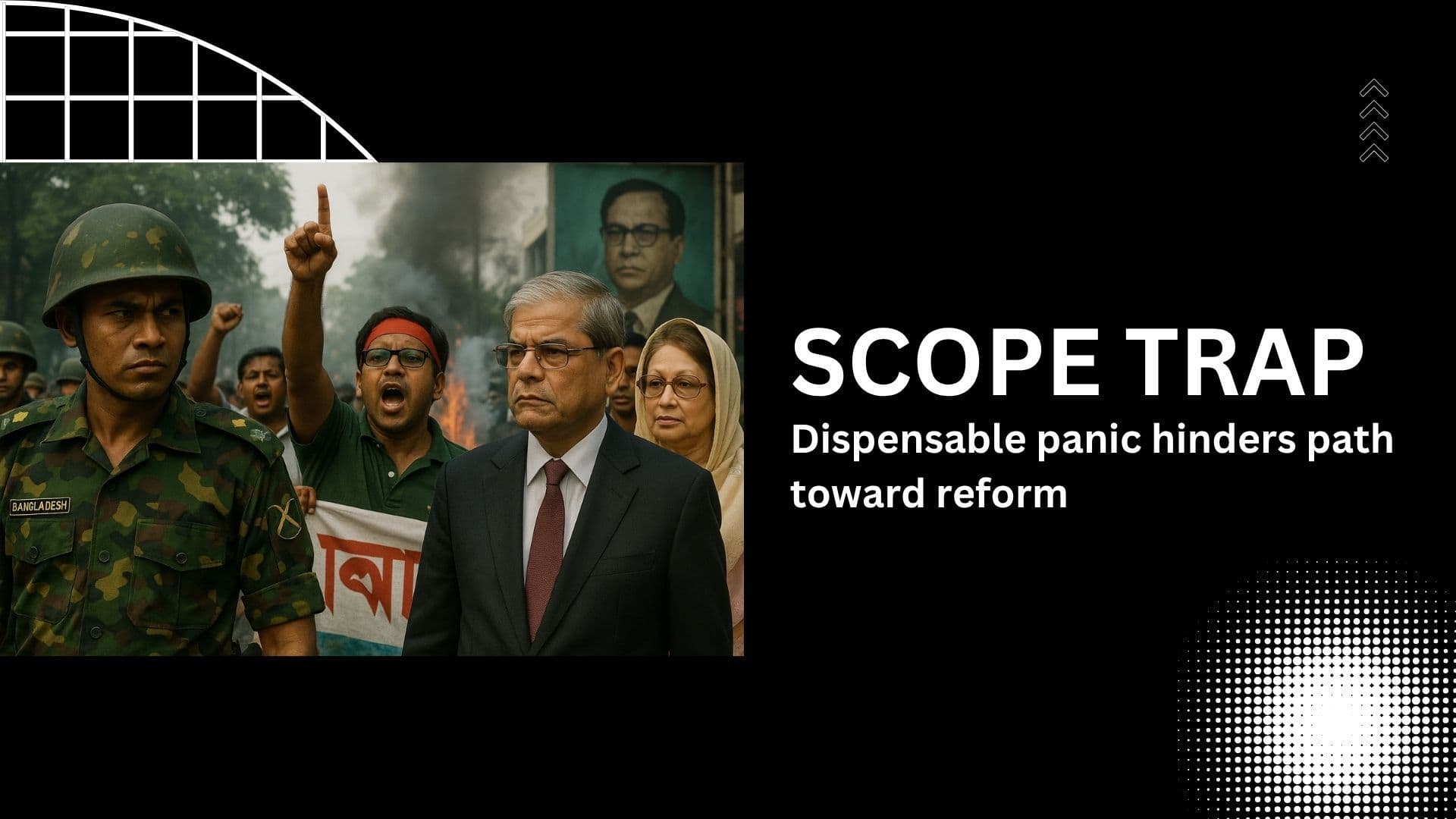How the July Uprising Made Politics Relevant to Youth: The Rise of a Gen Z Revolution


For decades, politics in Bangladesh felt distant to the youth. Corruption, dynastic rule, and party-centric narratives made it feel like a game played far above the heads of students and young professionals. That changed in July 2023—a month that marked the beginning of a youth-led political awakening.
The July Uprising, sparked by deep-rooted frustration over government policies, electoral transparency, and authoritarian tendencies, was not just a moment of protest—it was a defining shift in political consciousness, especially among Gen Z.
From Bystanders to Stakeholders
Before July, many young people believed that politics was something they should avoid. After July, they realized it’s something they must shape.
A recent Dacca Observer campus survey conducted across five universities showed that 78% of students now consider themselves “politically aware,” compared to only 34% just a year ago. The shift is clear—Gen Z is stepping into politics not as spectators, but as decision-makers.
Digital Politics: Facebook Comments as a Form of Protest
One of the most unique features of the July Uprising was how social media became a battleground. From viral Facebook statuses to Instagram stories sharing protest locations, Gen Z organized, mobilized, and spoke up—all in real time.
Some say the government is now being “run by Facebook comments”—and while that may be an exaggeration, the online voice of the youth has undeniably gained political weight. Ministers and policymakers are watching what students say. Public opinion, especially online, is starting to shape policy.
Why This Is a Revolution, Not Just a Protest
This movement isn’t just about reacting to power; it’s about reimagining it.
Young people aren’t aligning themselves with traditional political parties. Instead, they’re forming ideological communities—focused on transparency, decentralization, representation, and national dignity. For many, this is the birth of a new political identity—Bangladeshism—a people-first, youth-led, forward-looking approach to politics.
“I didn’t go to the street for a party. I went because this country belongs to me too.” — Tanvir, protester from Uttara, 22 years old
The Impact Ahead: A Youth Vote That Can’t Be Ignored
If elections are held in the near future, the youth vote will be one of the most powerful forces in shaping the outcome. Political parties are now being forced to rethink their strategies, with many trying to engage young voters through more authentic platforms and dialogues.
But the youth aren’t just looking to vote—they’re looking to lead. This is the foundation of what Dacca Observer calls the Gen Z Revolution.
What Comes Next?
Student Union (ছাত্রসংসদ) Elections are becoming a central demand, especially from private university students.
Calls for inclusive, safe political environments in academic institutions are getting louder.
Public discourse is evolving, with more young people asking difficult questions about nationalism, diplomacy, democracy, and justice.
Dacca Observer will continue to capture these voices, publish collective opinions, and push the youth agenda into the national conversation—through data, surveys, interviews, and grassroots analysis.
Final Thought
The July Uprising wasn’t a single protest. It was a turning point. It woke up a generation. It reminded us that change is possible when the people care enough to act—and that politics, at its best, is simply the voice of the people being heard.
Gen Z is no longer knocking on the doors of politics. They’re already inside.


